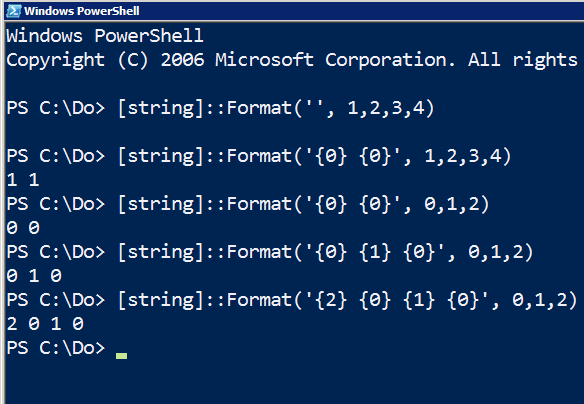PowerShell REPL, by Example
The PowerShell REPL is awesome.
PowerShell is by no means the only REPL. There's the immediate window in Visual Studio, the Snippet Compiler, LINQPad, the Interactive C# shell from Mono, and a REPL environment for most every other scripting language on the planet. Some of the TDD guys refer to "exploratory tests" that they write to learn about a third-party API. On the Regex front, there are scads of web-based and Windows-based tools to help you build and test regular expressions as fast as you can hit the "Run" button. I'll even accept writing a console application as a weak form of a REPL, though I wouldn't encourage it. All these things serve the same goal: give me instantaneous feedback. For those of you already familiar with the REPL, we're good, we're in the know.
But if you're the person who never uses a REPL, allow me to show you, using an example from just 3 minutes ago, how powerful they are.
My burning question
All this began with a burning question: what happens in string.Format() if I place the parameters out of order? What happens if I use a parameter twice?
The question, answered within 1 minute using the PowerShell REPL

Conclusion stated in words
I answered a specific question about .NET's string.Format() library function in less time than it would have taken to search and peruse the search results. Sandboxes such as these reduce the friction and enable me to run a series of experiments as quickly as I can think of them. Good REPLs (like PowerShell) allow me to a) quickly get feedback on my input commands, b) format and parse the resulting objects into a meaningful answer. Bad feedback loops (things that aren't REPLs) require overhead to even run, deliver feedback in over an hour or even as late as the next day or the next week, and deliver meaningless answers (think huge log files). I'm just here to make sure you're all aware: you have a choice: you can choose a REPL, or you can choose awfulness. Your call.
 Peter Seale's weblog
Peter Seale's weblog